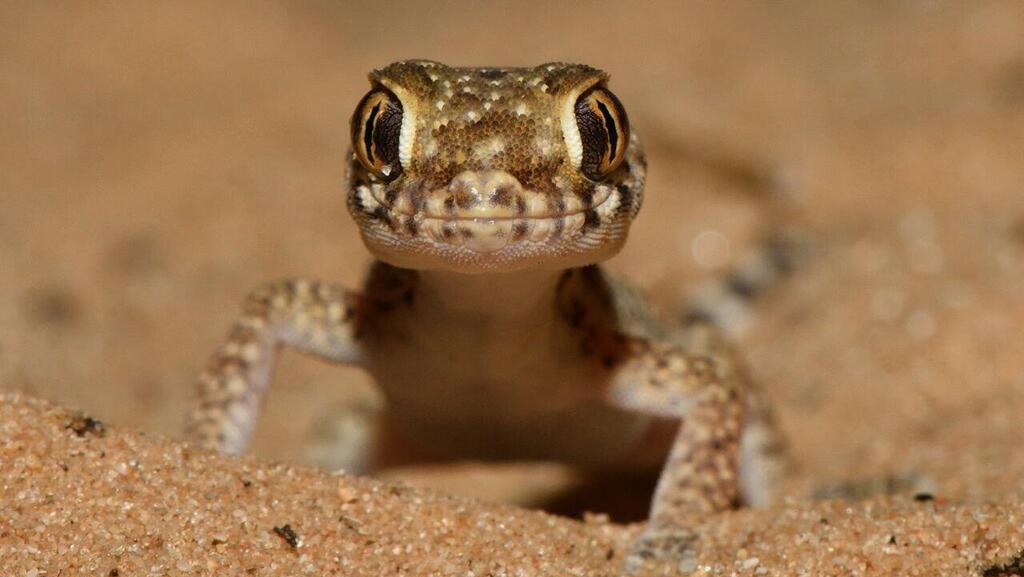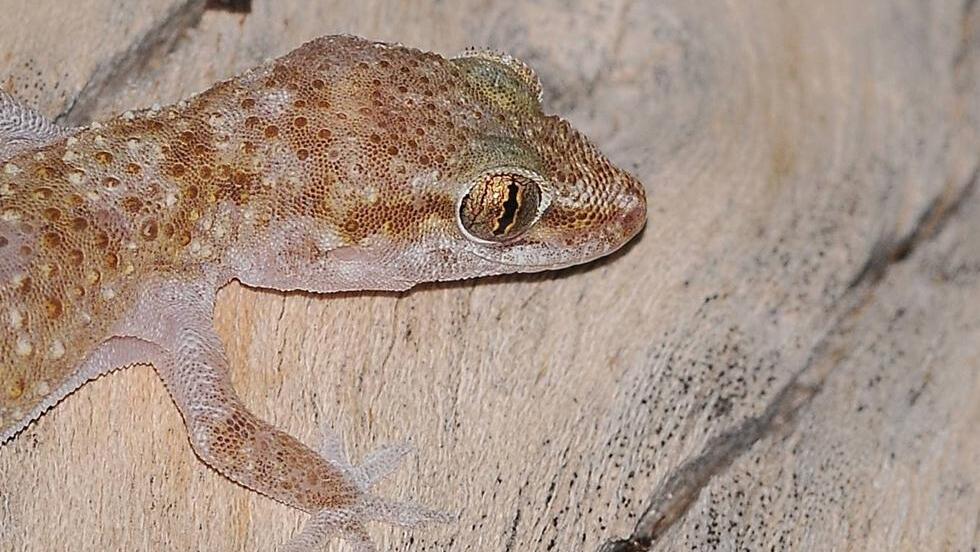Getting your Trinity Audio player ready...
A new study by Tel Aviv University and the Steinhardt Museum of Natural History has shown that the war in Gaza is severely impacting wildlife. The study, which focused on geckos, found that the sound of explosions from rocket fire causes them stress and anxiety, sharply increasing their metabolic rate – an energy cost that may endanger their lives.
The researchers estimate these stress and anxiety symptoms likely affect many other animals, especially those living in the combat zones in Israel’s north and south.
3 View gallery


The sound of explosions from rocket fire causes geckos stress and anxiety
(Photo: Yonatan Ben Simon)
The study was led by a team of researchers from the university’s School of Zoology and the museum and published in the journal Ecology. It came about by chance, since the researchers already were examining the acclimatization time of wild geckos to captivity to use them in controlled experiments at the university.
The geckos were placed in a metabolic chamber to observe how their bodies responded. Then, the war broke out. "During Operation Guardian of the Walls in 2021, we had a snake that was part of a larger study, and it was inside the metabolic chamber when a missile was intercepted near the university. The snake reacted like the geckos did during the war," the researchers said.
Coincidentally the geckos were in the metabolic chamber when missiles were fired at Tel Aviv, and the researchers saw this as a golden opportunity for their study.
"The terrible thing about war is, of course, the loss of human lives: soldiers and civilians. But, unfortunately, animals are also severely affected both directly and indirectly, in ways that may endanger their lives,” Professor Shai Meiri explained.
“A few weeks before October 7, we started a routine study examining the energy consumption rate of small ground geckos of the Stenodactylus sthenodactylus species. We, of course, didn’t foresee the outbreak of war, but unintentionally managed to document the energy consumption of five geckos during the missile barrages fired at Tel Aviv in the first month of the war,” he added.
Once the explosions began, the geckos' metabolic rate doubled when compared to their resting state. They breathed faster and showed clear signs of distress. The experiment continued for up to four hours after the barrages, and the geckos hadn’t calmed down or returned to resting metabolic levels. Moreover, even after a month of fighting, the geckos didn’t get used to the sound of explosions and their response remained unchanged.
The study was conducted by doctoral student Shahar Dubiner, Professor Shai Meiri, and Professor Eran Levin, in collaboration with Dr. Reut Vardi from the University of Oxford. "We know the consequences of stress on animals and humans," Meiri said.
"Stress directly causes increased resource consumption. For example, the available sugar and fat reserves, which an animal needs daily to avoid starvation and to reproduce properly. We know stress hormones negatively impact reproduction. The animal has to compensate for the situation it’s in,” he added.
3 View gallery


Once the explosions began, the geckos' metabolic rate doubled when compared to their resting state
(Photo: Eldad Golan)
Levin added, "Stress isn’t good, neither for humans nor animals. To compensate for the increase in oxygen consumption and depletion of energy reserves, animals need to eat more. Even if they manage to find food, they expose themselves to predators and lose opportunities to reproduce in the process.”
“In a prolonged war, like the current situation in Gaza, southern Israel, and the northern border, the energy cost may be high and significantly impact the energy reserves and activity times of reptiles and other animals. This could worsen their conservation status, especially for species already at risk."
The researchers wrote in their article’s conclusion: "We mourn the pain and loss caused to people by armed conflicts here and everywhere, and we hope the results of our study will serve as a reminder that war can cause devastating effects far beyond what is apparent to us."



